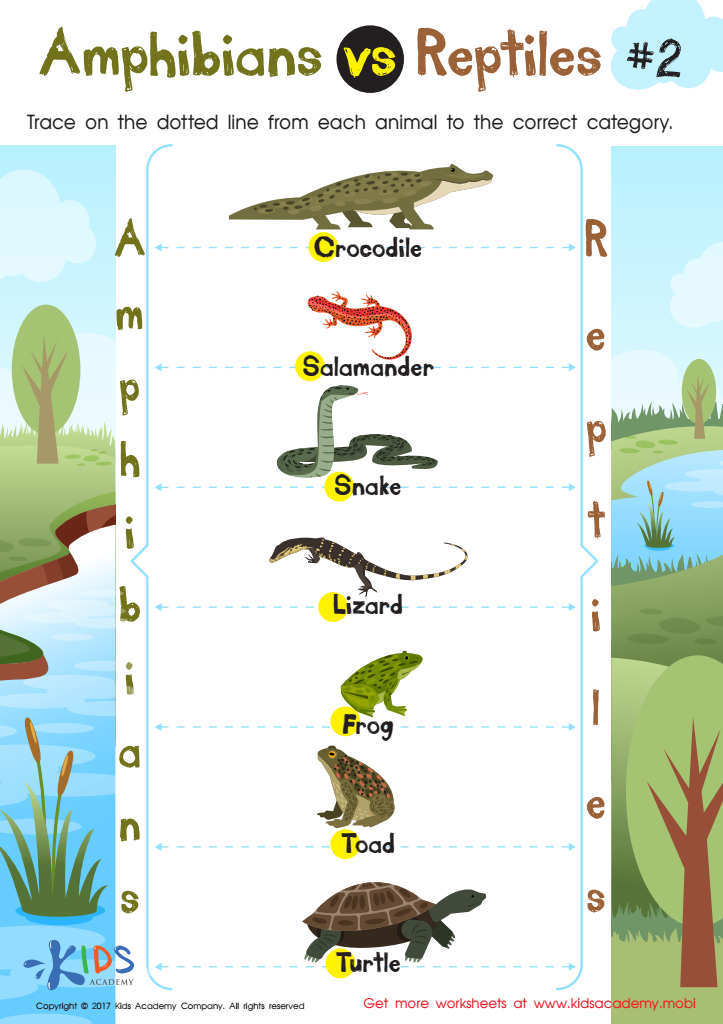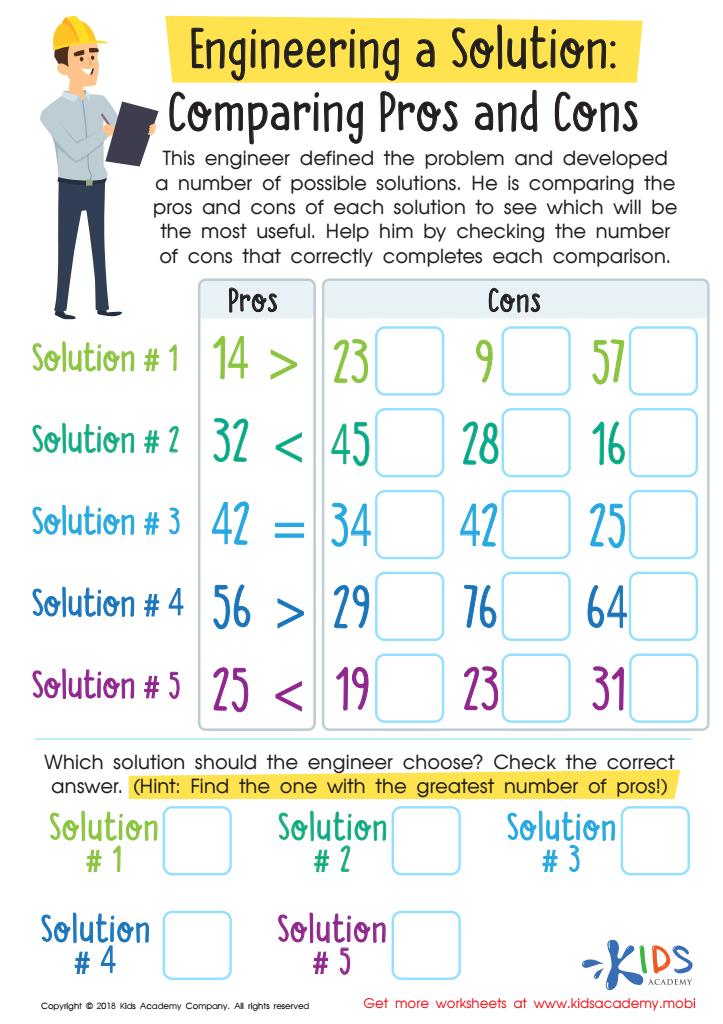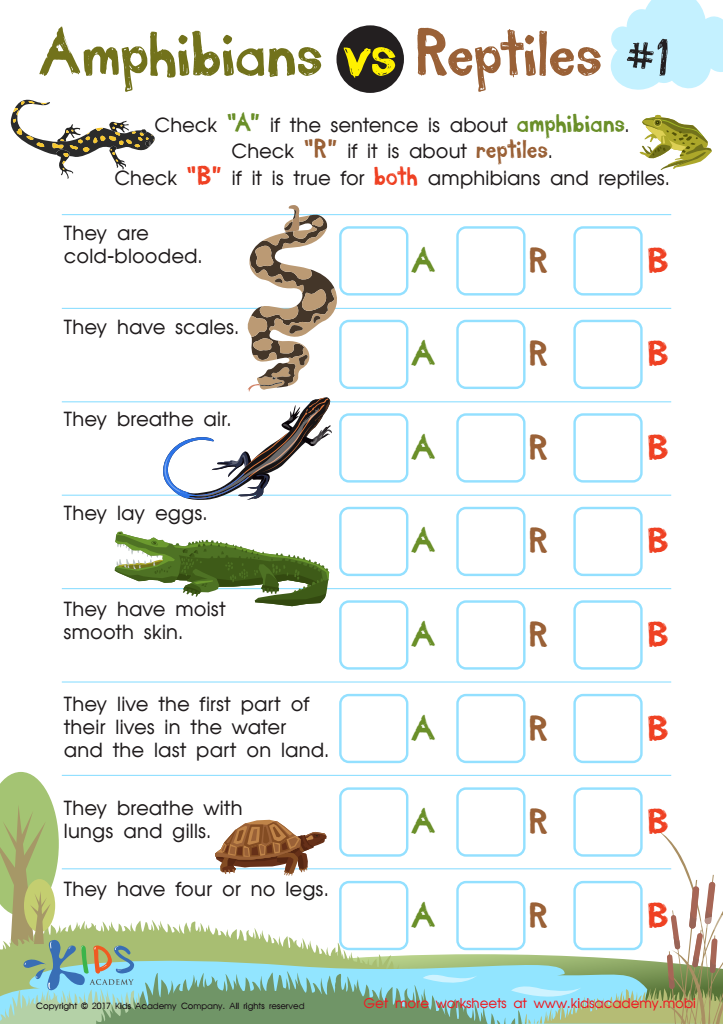Comparative analysis Science Worksheets for Ages 3-9
3 filtered results
-
From - To
Discover high-quality, age-appropriate science worksheets tailored for children aged 3-9. Kids Academy provides interactive and engaging printable materials focused on comparative analysis skills. These worksheets help young learners enhance their critical thinking by comparing different objects and elements found in nature. Our expertly designed activities range from basic comparisons for preschoolers to more complex analyses for older kids, reinforcing foundational science concepts. Perfect for both home and classroom settings, these resources promote hands-on learning while fostering curiosity and understanding of the natural world. Visit Kids Academy to explore our full collection and give your child a head start in scientific literacy.


Amphibians vs Reptiles Worksheet for 3rd Grade


Engineering a Solution: Comparing Pros and Cons Worksheet


Amphibians vs Reptiles Worksheet
Comparative analysis in science for children aged 3-9 is crucial because it fosters critical thinking and foundational scientific skills at an early stage of development. Through activities that compare and contrast different objects, materials, and phenomena, children learn to observe details, categorize information, and make reasoned conclusions. This process not only aligns with natural curiosity but is also instrumental in developing analytical skills that are essential across all areas of learning.
Parents and teachers should care about this approach as it supports cognitive development in highly engaging ways. Children are encouraged to ask questions, facilitate investigations, and explore hypotheses. For instance, comparing the characteristics of rocks, leaves, or even different weather conditions promotes a richer understanding of the world around them. These activities also incorporate fundamental concepts such as measurement, estimation, and pattern recognition, which are key to success in more advanced scientific studies later on.
Furthermore, comparative analysis nurtures problem-solving skills and perseverance. As children encounter differences and anomalies, they learn the value of refining their approaches and appreciating diverse outcomes. When parents and teachers prioritize this kind of scientific inquiry, they create a stimulating environment where young learners feel empowered to explore, discover, and cultivate a lifelong love for science.
 Assign to My Students
Assign to My Students
















